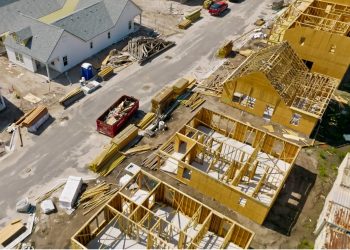RISMEDIA, April 28, 2009-The National Association of Home Builders (NAHB) called on Congress to ensure that legislation intended to make homes more energy efficient focuses on measures that provide the greatest environmental benefit without putting housing affordability at risk.
NAHB Construction, Codes and Standards Committee Chair Dwight “Sonny” Richardson, a home builder in Tuscaloosa, Ala., made several recommendations to the House Subcommittee on Energy and the Environment when he testified at a hearing on the American Clean Energy Security Act.
First, legislation must be flexible and include not just the savings achieved from insulated doors, windows and wall cavities, but also energy-efficient heating and air conditioning systems – or a combination of insulation and appliance requirements depending on the home’s location or market preference. “Don’t modify codes and standards so that they can’t accommodate every state’s climate demands simultaneously or equally,” Richardson said.
Second, Congress should “extend, or make permanent” the tax credits passed earlier this year that incentivize the purchase of energy-efficient windows, additional insulation and other improvements in existing homes – where the greatest gains in energy efficiency are most likely to be realized, he said.
The funding available to encourage home owners to make these improvements should also be available to home buyers to help them pay for the additional costs associated with very efficient new homes, Richardson added.
Finally, “Congress must embrace the broadest possible green building policy and provide consideration for homes that comply with standards approved by the American National Standards Institute (ANSI),” which federal law gives preference over private guidelines and rating systems, he said.
As an example, Richardson pointed to the ICC-700 National Green Building Standard for residential construction, remodeling, and land development. “ANSI recognition of the National Green Building Standard is important because energy code targets by themselves cannot accommodate the more robust sustainability framework of green building, which achieves greater environmental performance as a whole over energy efficiency alone.”
And in all cases, Congress must acknowledge the need for housing affordability – not just to make it less expensive for consumers to live in homes with these improvements, but also to avoid pricing them out all together. “NAHB hopes that Congress will not impose policies that increase costs for newer, more energy efficient homes in a manner that relegates lower and moderate-income families to less-efficient older housing stock,” he concluded.










